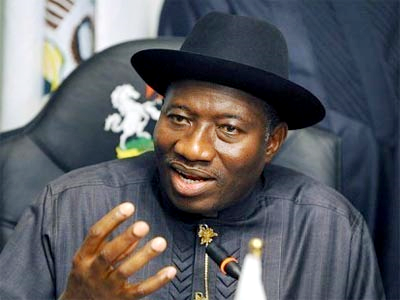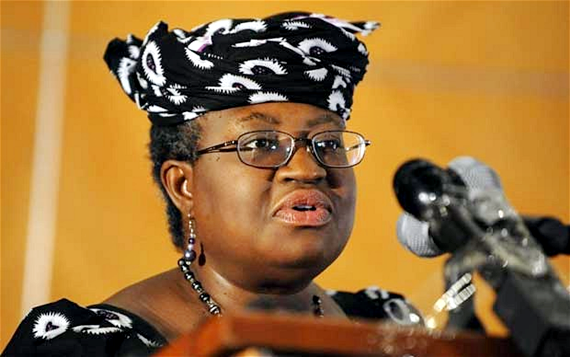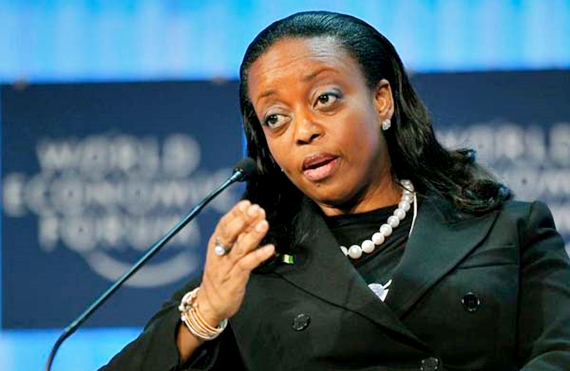Lagos (AFP) – Nigeria could leap-frog South Africa to become Africa’s biggest economy this weekend, when the results of a new way of calculating national output are announced. Government statisticians will unveil the new figures on Sunday, with widespread expectations that their recalculations will catapult the continent’s most populous nation into the top spot.
The figures, which will include new and fast-developing sectors such as telecoms and the local film industry, Nollywood, should give foreign investors a better picture of the country’s economy. Some predictions say the revision could see the size of Nigeria’s economy increase by as much as 60 percent, taking it from $264 billion past South Africa’s $384 billion.
President Goodluck Jonathan
But analysts cautioned against viewing the new figures as a sign of development, noting that South Africa was still way ahead in terms of GDP per capita, infrastructure and governance. Although pockets of vast wealth exist, the last available World Bank figures from 2010 indicated that a staggering 84.5 percent of Nigeria’s 170 million people lived on less than $2 a day. Key services such as electricity and water provision remain notoriously poor.
Ngozi Okonjo Iweala
“Nothing will really change in real time. It is not as if everyone is going to have twice as much salary,” Chuba Ezekwesili, an analyst with the Nigeria Economic Summit group, told AFP. United Nations statisticians recommend that countries rebase their gross domestic product calculations every five years to reflect changes in the structure of production and consumption.
Africa’s leading crude producer has enjoyed high rates of growth, notwithstanding widespread corruption, poor governance, rampant oil theft and a raging Islamist insurgency in the north. The annual growth rate averaged 6.8 percent from 2005 to 2013 and the economy is projected to grow this year at a rate of 7.4 percent, according to the International Monetary Fund.
Diezani Alison-Madueke
That compares to a little over five percent between 2005 and 2008-9 in South Africa, which has struggled to go beyond 3.5 percent since. Figures for the telecoms and film sectors are likely to be seized upon as an indication of how much Nigeria’s economy has changed since the last calculation of GDP was carried out.
In 1990, even fixed landline provision in Nigeria was low but Nigeria is now Africa’s biggest mobile market with an estimated 167 million subscriptions, according to the Nigerian Communications Commission. Nigeria’s film industry annual revenue may be as high as $590 million, according to Robert Orya, head of the Nigerian Import-Export Bank.
SOURCE: AFP





Leave a Reply